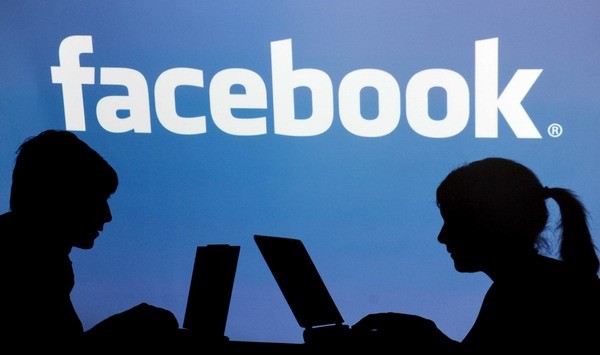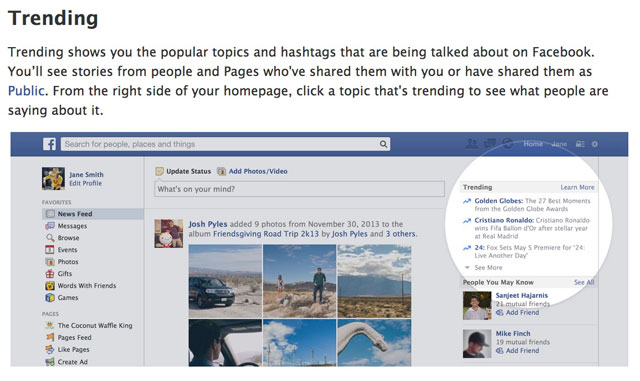Facebook is trying to please everyone, constantly changing the "rules of the game"

About 1.7 billion users visit Facebook every month. 200 million of them are residents of the United States, representing almost two thirds of the population of this country. According to the Pew Research Center for 2016, 44% of Americans read the news on Facebook.
Therefore, a significant part of the US population forms its own picture of the world on the basis of this social network. Many have underestimated the impact of Facebook on the minds and finances of users, until the case took
serious turnover.
In May 2016, an article appeared on the Gizmodo website in which former employees of the company accused Facebook of political bias. Allegedly, in the Trending Topics ribbon (actual topics), the posts of conservative media in favor of liberal ones are deliberately eliminated. One of the conservative media even stated that its “communications are in the hands of enemies.” Some experts said that living people with certain beliefs, developing an algorithm for forming the tape, cannot but influence it at least indirectly, unconsciously.
')
Facebook did not admit to its intentional bias, but stated that it would change the algorithm for forming the trend tape.
On August 27, Facebook updated the Trending heading (“Popular News”) after reporting political bias in choosing news. The press service of the company said they made the heading more automated. Thus, we are confident in the company, the engagement will decrease.

The Popular tab contains the most talked about news on Facebook, each with a short description.
Now Facebook will assign robots to create news descriptions, users will also see the number of people discussing this news. The goal of Facebook, according to a press release, is to make it convenient for as many people as possible. "It is difficult if we summarize the topics in the manual", - explained in the company.
Monetized news feed
But the Trending Topics feed is not as prominent on the social network interface as the personalized news feed. It is a much more powerful tool for influencing a Facebook user. Depending on your likes, clicks and shores, a social network is not only able to keep track of the interests and hobbies of users, but can also attribute them to one or another political camp.
If you like a post in support of Hillary Clinton, you will be marked as a liberal, and even if you don’t like any of the candidates, Facebook will draw conclusions about you based on the political views of those users who have different interests with you, writes New York Times.
Based on user preferences, political campaign leaders determine who should be involved in their events. For example, the team of Donald Trump paid Facebook to advertise to those users who are marked as “politically moderate”, writes the NYT. At the same time, the advertising content of one customer also differs: what the ardent supporters of one party see is different from what those who are just involved in the election campaign see.

Based on the information that the social network collects about users, not only the news feed, but also advertising on the Facebook page is formed - and that is why knowledge of favorite countries, clothing brands and other interests of users is materially valuable.
When social networks were not yet so popular, any Internet resource could attract its audience in only two ways: through the main page of the site and through search services. By 2009, the media realized that the likes and cher on Facebook were able to bring them substantial traffic. A year later, the company introduced the ability to share materials on the social network directly from the main page of the site (now literally every article has buttons on Twitter, Facebook and other social networks). By 2012, transitions from posts to Facebook have already competed with transitions from search to Google, and the spread of smartphones has further increased the involvement of users in the life of the social network.
Advertising monetization
For material values advertisers actively compete, which, in turn, require effective advertising campaigns from social networks. Therefore, Facebook is constantly evolving in this direction.
Facebook is working on expanding the Audience Network (FAN) advertising network. The company also began testing Header Bidding's programmatic technology, which Google is already using.
According to The Information, Facebook intends to expand and diversify the base of the sites of the Audience Network. To achieve this goal, the company has agreed to cooperate with major publishers such as USA Today and Hearst.

Header Bidding technology allows you to increase competition for placements. If you add a special script to the page header, the display becomes available simultaneously for several SSP platforms. Each of them competes for it on uniform terms. As soon as the maximum bid is chosen, the impression will be sent to the advertising server and the corresponding creative will be shown on the publisher's website.
Facebook is reported to be testing Header Bidding for mobile and video advertising. Industry analysts believe that the use of this technology in FAN will jeopardize Google’s leading DoubleClick position in the display advertising market.
In January 2016, Facebook expanded the display of the Audience Network advertising to the mobile Internet. Previously, it was produced only in desktop-applications.
In March, the advertising network began to work with mediation platforms.
Recently, in the settings of advertising on Facebook, conversion tracking via offline channels became available - purchases in regular stores or phone orders. Innovation will allow advertisers to find out what the user does outside the web after clicking on their ad.
Ruslan Adiev, ArrowMedia Targeted Advertising Manager, commented on the situation :
Facebook recently very dynamically develops its advertising tools, significantly ahead of the market as a whole. And the novelty of tracking offline events is direct proof of that.
The tool helps to go beyond the boundaries of online advertising and link display ads with the purchase of offline. In general, user identification is based on 2 parameters: e-mail and mobile phone number.
However, Facebook recommends transferring other parameters in order to determine the maximum number of users (first name, last name, region, date of birth, and more). It is also necessary to transmit data about the user's action offline: the purchase, its amount and the date of its execution. All this information will allow determining the customer on Facebook with maximum accuracy and evaluating the effectiveness of current advertising campaigns bilaterally, receiving information not only about online purchases, but also about offline conversions. And customer lists can be used in the same way as other systems - show them special offers, etc.
This tool will be useful to almost all customers selling something offline: from a small cafe to developers of elite commercial real estate.
Theme Public
A relatively new kind of news resource - thematic public on Facebook. Unlike traditional media, these publics do not pursue an increase in traffic on the site through transitions from social networks - most of them simply do not exist beyond its borders.
The authors of these publics are “professional users” of this social network, as the NYT calls them. Their main goal is for a person to put a Like or Scher post and launch the “effect” of a personalized news feed. The posts of such publics can afford any liberty - they are not official media. Therefore, they attract much attention.
Such pages earn themselves hundreds of thousands or even millions of subscribers, which is often comparable to the audience of large media outlets. On the eve of the US presidential election, the political publics on Facebook can bring quick fame to the resource and make it quite influential.

There are now hundreds of such pages in this social network, and among them are such names as Occupy Democrats, Being America Great, The Angry Patriot, Being Liberal, Opposing Views, Fed-Up Americans, tells the NYT. Their content (often memes with vivid quotes from politicians) has a clear political setting. It can often be unmistakably recognized by their names.
Facebook recently announced that it intends to deal with provocative headlines and filter them from users' news feeds. This is not very good news for authors of such propaganda political publics.

Another unpleasant news (this time for partners among advertisers and the media) - in June, Facebook decided to push media materials in the News Feed to the background. The company gave top priority updates from friends and relatives.
According to representatives of Facebook, they thus took into account the "wishes" of users: the number of reposts decreased almost twice. Because of this decision, the referral traffic going to the sites of publications decreased. However, the same can be said about the income of advertisers. However, in the case of a fall in user interest in the news feed, the results would only get worse.
For publications, the situation is contradictory: on the one hand, now the social network is not trying to claim the role of the media; on the other hand, there are losses due to a drop in traffic, at least in the short term. Publications that consider their presence on social networks to be profitable will focus on other partners - Instagram, Snapchat and Google News. This will allow the media to attract new users.
Source: https://habr.com/ru/post/308658/
All Articles